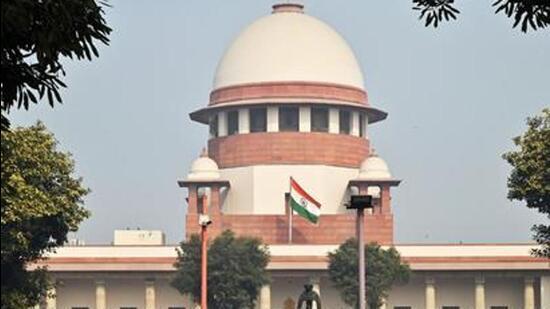
Calling someone ‘Miyan-Tiyan’ & ‘Pakistani’ not an offence: Supreme Court
In a recent ruling, the Supreme Court of India has stated that calling someone “Miyan-Tiyan” and “Pakistani” is in poor taste but does not constitute a criminal offence. This decision was made in response to a case filed against an 80-year-old man in Jharkhand who was accused of hurling abuses at an Urdu translator.
The case centered around an altercation between the 80-year-old man and the Urdu translator, who claimed that the elderly man had used derogatory language against him. The translator, who was working on a project to translate the Quran into local dialects, alleged that the man had referred to him as “Miyan-Tiyan” and “Pakistani” in a derogatory manner.
The translator filed a complaint with the police, and the 80-year-old man was subsequently arrested and charged with the offence of hurting religious sentiments. However, the Supreme Court has now ruled that the remarks made by the elderly man do not amount to hurting the religious sentiments of the translator.
In its ruling, the Supreme Court stated that while the use of the terms “Miyan-Tiyan” and “Pakistani” may be considered in poor taste, it does not rise to the level of a criminal offence. The court noted that the remarks were not intended to hurt the religious sentiments of the translator, but rather were a form of abuse.
The Supreme Court’s decision has sparked debate and controversy, with some arguing that the use of such terms is inherently offensive and should be considered a criminal offence. Others have argued that the court’s ruling is a victory for free speech and the right to express oneself.
This ruling is not the first time that the Supreme Court has had to grapple with the issue of religious sentiments and free speech. In recent years, the court has dealt with several cases involving the use of derogatory language and the alleged hurt of religious sentiments.
In one notable case, the Supreme Court ruled that the use of the term “haram” (unlawful) to describe a religious festival was not a criminal offence. The court held that while the use of the term may have been offensive, it was not intended to hurt the religious sentiments of any individual.
In another case, the Supreme Court ruled that the publication of a book that was critical of a particular religious community was not a criminal offence. The court held that while the book may have been offensive to some individuals, it was protected by the right to freedom of speech and expression.
The Supreme Court’s ruling in this case is a reminder that the right to free speech and expression is a fundamental right in a democracy. While the use of derogatory language and the alleged hurt of religious sentiments may be considered offensive by some, they must be balanced against the right to express oneself freely.
It is also important to note that the Supreme Court’s ruling is not a blanket endorsement of the use of derogatory language. Rather, it is a recognition that the use of such language is not necessarily a criminal offence, and that it must be evaluated on a case-by-case basis.
In conclusion, the Supreme Court’s ruling that calling someone “Miyan-Tiyan” and “Pakistani” is not a criminal offence is a reminder of the importance of balancing the right to free speech and expression with the need to protect the religious sentiments of others. While the use of derogatory language may be considered offensive by some, it must be evaluated on a case-by-case basis and must be balanced against the right to express oneself freely.






